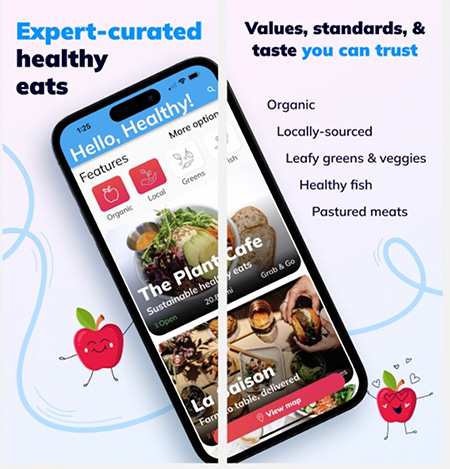Supporting Your Immune System Safely: Simple, Proven Ways to Stay Healthy
Over the past two weeks, we’ve explored the risks of relying on “immune-boosting” superfoods and the consequences of overdoing supplements. This week, as we conclude our series, I’m excited to share the safe, sustainable habits that have become the foundation of my healthy lifestyle. These tried-and-true practices may not be flashy, but they’re powerful in supporting a balanced immune system and overall well-being.
The Myth of the “Quick Fix”
In today’s wellness world, the promise of shortcuts or quick fixes that bring “limitless” or superhuman enhancements can be all too tempting. But true, lasting health doesn’t come from a pill, powder, or supplement. It’s built over time, through simple, sustainable habits that nurture your body and mind. Here’s a look at how you can genuinely support your immune system, the old-fashioned way. No shortcuts, no sensationalized tactics, just making one healthy decision after another… step by step in a healthy direction.
1. Quality, Balanced Nutrition
Clean, whole-food, plant-based foods are foundational for any healthy diet and optimal immune function. A diet abundant in colorful, seasonal vegetables, leafy greens, herbs and spices, fruits, whole grains, legumes, mushrooms, nuts, and seeds provides a diverse range of nutrients essential for immune health.
Studies show that a balanced diet not only bolsters the immune system but also helps prevent chronic diseases and promotes overall longevity. For example, seasonal fruits and vegetables are rich in antioxidants, which help counteract oxidative stress in the body, an essential factor in reducing inflammation and supporting immune resilience.
Nutrient Density and Local Sourcing:
The nutrient density of food depends not just on the type of produce but also on the quality of the soil and the farming practices used.
Produce from regenerative, organic, or biodynamic farms – which prioritize soil health – often contains higher levels of vitamins and minerals.
The fresher the produce—ideally locally grown and recently harvested—the more nutrient-dense it is, as nutrients degrade over time. By choosing fresh, local produce, you maximize the nutrient content and immune-supportive benefits, in addition to supporting a more sustainble local economy.
Healthy Fats and Sustainable Proteins:
Including modest amounts of healthy fats, such as those from avocado, nuts and seeds, EVOO, and Omega-3-rich proteins like wild-caught salmon and sardines, can further support heart health and reduce inflammation. Omega-3 fatty acids are particularly beneficial for modulating the immune response and promoting cardiovascular health.
This combination of nutrient-dense, anti-inflammatory foods supports the immune system in a holistic way, helping to create a foundation for lasting health.
All calories are not equal - and neither are all servings of spinach! Look for quality, local sources that use organic or better practices - ideally regenerative or biodynamic.
Leigh Balkom
2. Quality Sleep
Getting enough high-quality sleep is essential for immune function. Sleep allows your body to repair and regenerate, and a lack of sleep can weaken the immune response, making you more susceptible to illness. Experts recommend aiming for 7–8 hours of sleep per night for optimal health.
Sleep deprivation can disrupt hormonal balance, leading to increased cortisol and ghrelin levels. Elevated ghrelin, often called the “hunger hormone,” stimulates appetite and can lead to overeating, while prolonged high cortisol levels can raise blood sugar and contribute to insulin resistance, which are risk factors for metabolic issues like obesity and type 2 diabetes.
Moreover, sleep loss is associated with decreased leptin, a hormone that helps regulate satiety, which can further contribute to weight gain and metabolic challenges.
Establish a healthy nighttime routine that you can maintain. Limiting screen time before bed, and keeping your sleep environment cool and comfortable can all contribute to better sleep quality.
3. Stress Management
Chronic stress can weaken the immune system and increase inflammation in the body. Managing stress and building stress resilience is critical to maintaining immune health.
Techniques like meditation, deep breathing exercises, and mindful movement and presence can all help reduce stress levels and improve resilience.
Studies indicate that mindfulness practices can lead to lower levels of the stress hormone cortisol, which supports a more balanced immune response. Even just a few minutes of daily mindfulness practice can make a meaningful difference in managing stress.
4. Regular Physical Activity
Exercise is a powerful tool for boosting immunity and overall health. Regular, moderate exercise has been shown to improve circulation, reduce inflammation, and enhance immune function.
Aim for at least 150 minutes of moderate exercise per week, such as brisk walking, cycling, or yoga.
Research suggests that exercise can enhance the activity of immune cells and improve the body’s response to pathogens. However, it’s important to avoid over-training, especially during times of stress, as excessive exercise can actually suppress immune function.
5. Hydration and Clean Water
Hydration is essential for overall health and plays a role in maintaining a healthy immune system. Water helps flush toxins out of the body, supports cellular function, and moistens the mucous membranes, which are the body’s first line of defense against infection.
Most healthcare professionals recommend drinking 0.5 – 1 ounce of water per pound of body weight (so if you weigh 140, you’d drink 75-140 ounces total per day).
If you find yourself over-drinking water (I’m guilty of this from time to time!), then I’d suggest considering a daily minerals and electrolyte mix to add to one of your glasses of water.
Top healthy hit restaurant GOODONYA, in Encinitas, CA, carries a line of Organic hydration powder (HYDRATE), available through their website and/or Amazon. I use 1 tsp – TBSP daily. Check it out and support a top healthy, sustainable restaurant while you’re at it!
Opt for filtered or purified water to avoid potential contaminants.
6. Social Support & Connection
Humans are social beings, and our connections with others significantly impact our health. Meaningful relationships and community support can help reduce stress, boost mood, and enhance overall well-being. Studies show that individuals with strong social support systems have better immune responses and lower levels of inflammation.
Whether it’s spending time with loved ones, joining a community group, or volunteering, fostering connection is crucial for health.
Engaging with others in activities that give you a sense of purpose can improve resilience and help you cope with life’s challenges.
Avoiding the Overuse of Immune-sensitive Supplements and "Superfoods"
While supplements can be beneficial, it’s crucial to approach them thoughtfully and avoid excess, especially if you’re immune-sensitive.
“Immune-boosting” supplements, herbs, and superfoods can backfire, especially in immune-sensitive individuals. It’s essential to consult a qualified health practitioner — ideally, someone trained in functional or integrative medicine —before incorporating these into your routine.
This caution applies to a variety of immune-boosting substances, including echinacea, spirulina, chlorella, cordyceps, chaga mushrooms, ashwagandha, and more.
Some supplements, like Vitamin D and Vitamin B12, are commonly taken due to widespread deficiencies. However, it’s wise to consult with a healthcare professional to determine your specific needs. For fat-soluble vitamins, such as Vitamin D, it’s especially important to monitor blood levels regularly, as these can accumulate in the body and lead to toxicity over time.
Building Health for the Long Haul: Make Healthy Choices every Day
The path to sustainable health isn’t about finding the latest superfood or supplement. It’s about making consistent choices that support your body and mind over time. By focusing on balanced nutrition, quality sleep, stress management, regular exercise, hydration, and meaningful connections, you can build a foundation for lasting wellness.
At Healthy Anywhere, we’re committed to helping you live well, wherever you are—without relying on quick fixes or fads.
Download our app to discover wholesome, immune-supporting foods on your journey to better health.

Related Reading
Resources
- Consistent sleep deprivation can lead to heightened cortisol and ghrelin levels, influencing increased appetite and insulin resistance, contributing to metabolic disturbances. (Stanford Center on Longevity)
(Diabetes Journals) - Higher ghrelin and reduced leptin levels due to sleep loss increase hunger and the likelihood of overeating, which can elevate the risk for obesity. (PLOS)
Balanced Diet and Immune Health: Research highlights that a diet rich in seasonal fruits and vegetables provides essential antioxidants, which reduce oxidative stress and support immune resilience. Nutrient density, especially in organic and biodynamically grown produce, plays a significant role in promoting longevity and preventing chronic diseases. (Regenerative practices improve nutrient-density of crops) (Foods for Immunity – Cleveland Clinic) (The Nutrition Source)
Sleep and Immune Function: Chronic sleep deprivation is linked to increased cortisol and ghrelin levels, which contribute to hunger, insulin resistance, and higher risk for metabolic issues like obesity and type 2 diabetes. (Sleep and immune function) (Stanford Center on Longevity) (Diabetes Journals)(PLOS)
Exercise and Immune Support: Regular moderate exercise enhances circulation and immune cell function, which helps the body respond to pathogens more effectively. (Right as Rain by UW Medicine) (Center for Nutrition Studies). Conversely, excessive exercise can suppress immunity. (Verywell Fit)
Social Support and Immune Health: Studies demonstrate that social connections and a sense of purpose can reduce stress and inflammation, supporting a balanced immune response. (Frontiers – Social support and mental health: the mediating role of perceived stress) (Springer: Social Support and Resilience: Impact on Mental Health)
Discover the best healthy, sustainable, and delicious food near you.
Healthy Anywhere
Conscious. Clean. Curated.™


